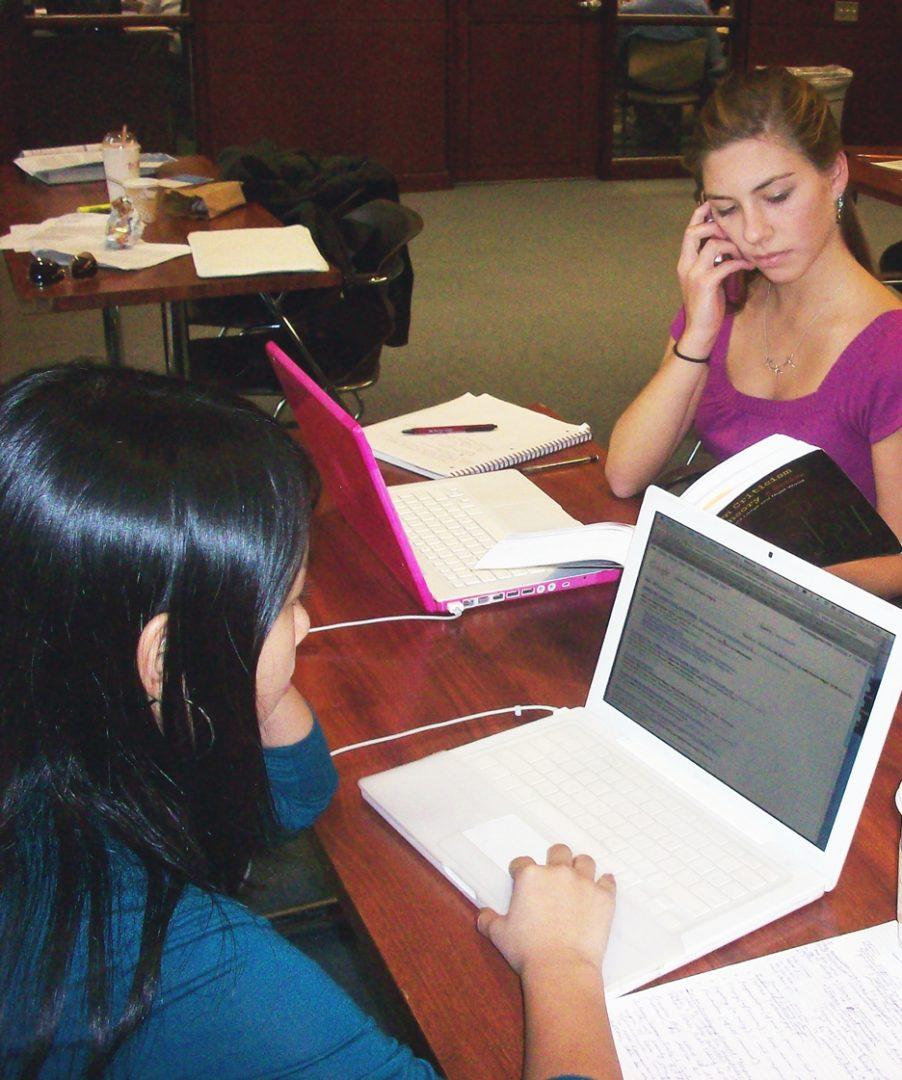Recent Study Finds Multitasking A Detriment To Productivity
June 27, 2011
Published: October 22, 2009
According to a study by researchers at Stanford University, students who spend class time multitasking aren’t actually getting anything done. At Fordham College at Lincoln Center (FCLC), students and professors wonder if juggling between laptops, BlackBerries and note-taking results in overall decreased productivity.

The study found that multitasking actually results in less work accomplished overall. According to the study, “The people who multitask the most are the ones who are worst at it…multitaskers are more easily distracted and less able to ignore irrelevant information that people who do less multitasking.”
“I give Fordham University students a tremendous amount of credit,” said Monique Fortuné, adjunct professor of communication and media studies. “I encourage laptop use during class because it does aid students with their note-taking ability… and as soon as class begins, there is no more cell phone use, period!” she said.
Jennifer Lane, FCLC ’12, said, “I use my laptop in two out of five of my classes, but I make sure I don’t open the Internet.” She explained that it would get too distracting for her, so she only leaves a Microsoft Word document open for taking notes in class.
“Most students are texting when I walk into the class, but that’s fine with me,” said Brian Rose, professor of communication and media studies “Class hasn’t started and they need to inform their 300 closest friends that they’ve just finished lunch and are ready to start their next class.”
Rose said, “I strictly forbid the use of any electronic technologies in my class, for one reason and one reason alone—students with a laptop can’t resist the addictive allure of Facebook and thus spend their entire time in class chatting with their friends.” He said that laptop use is a distraction to students’ surrounding classmates and that he finds it “incredibly rude.”
“I want my students to be totally connected to what is happening during our sessions,” said Fortuné. “It is a rule on my syllabus and I repeat it loud and clear during our sessions—place your cell phones on silent or vibrate,” she said. “I have not seen an overall drop in grades with the increase of dependence on technology.”
Merissa Mistretta, FCLC ’12, said that she does not like to use a laptop to take notes in class because she is “worried about what professors might think she is doing.” She said, “I am not a fast typist and [with the Internet a click away] Facebook would be distracting.” She explained that when people in front of her are using the computers, “it is very convoluting.”
Christopher Maginn, assistant professor of history at FCLC, said, “I think that laptops can become problematic if they draw the attention of other students sitting near them.” He said, “Unlike the more traditional methods of note-taking, what appears on the screen of a laptop is clearly visible to a number of people sitting behind the user.”
However, Fortuné said that she feels laptops are “oh, so good and well during our sessions if the laptop is used to aid our learning experience.” She explained that, for example, she encouraged a student to go online and research a subject discussed in class. “Because the student was able to use his laptop, the technology assisted with the forward movement of our class discussion,” she said.
The research also studied the students’ abilities to ignore irrelevant information as well as their ability to switch from one task to another. “The high multitaskers took longer to make the switch from one task to the other… they couldn’t help thinking about the task they weren’t doing,” the study said.
“Yes, I am a great multitasker,” said Pervez Khan, FCLC ’12. “I constantly text in class because I am a text addict, but I am still able to concentrate in class.” Even so, he said, “I am actively engaged in class discussions.”
Cindy Xie, FCLC ’11, said that she is a great multitasker and “Hell yes… I have everything planned out from now until next year.” She said that she is able to answer important e-mails while taking notes in a class. “It takes practice to learn how to stay focused,” she said.
“I adore, use and advocate for technology,” Fortuné said. “Social media, e-mail, laptops and all digital media has its place when we stay connected to the concept of effective functionality,” she said. Fortuné said that she feels we all need to be careful because “in today’s fast-paced society, we, as thinking and feeling human beings, we must control and monitor our technology.”








